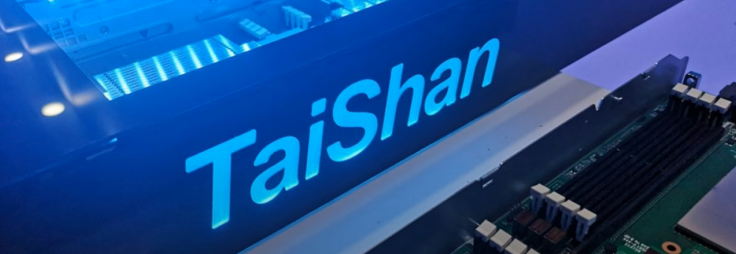
Huawei is reportedly developing its next-generation Taishan cores, which promise significant advancements in performance and energy efficiency.
According to sources on X, the new Taishan cores aim to outperform previous models and compete with industry giants like Apple. This development could mark a substantial breakthrough for Huawei, which has faced considerable challenges due to U.S. sanctions.
Significant Performance Boosts
The forthcoming Taishan cores are said to be 175% faster and more power-efficient than the current Kirin 9000s, making them a vital component of Huawei's upcoming CPU architecture. These new cores will serve as the power-efficient option within the architecture, delivering lower power consumption while outstripping the performance of the Kirin 9000s' Cortex-A510 cores. The Taishan V130 architecture, based on a 5nm manufacturing node, is expected to compete directly with Apple's M3 chip, which underscores Huawei's ambition to reassert its position in the high-performance chip market.
The new Huawei Taishan's small cores has adopted a style similar to Apple's small cores, achieving extremely low power consumption while maintaining a single-core score of around 350 points in GeekBench 5. In contrast, the A510 on the 9000S only scores around 200 pts. pic.twitter.com/mWHBJl97Ky
— jasonwill (@jasonwill101) June 27, 2024
Sources claim that the new Taishan cores have entered Geekbench 5, scoring an impressive 350 points in single-core testing. This is a significant improvement over the Kirin 9000s' score of 200 points. Such advancements indicate that the new cores can achieve extremely low power consumption while delivering robust performance.
These enhancements are likely to bring notable performance boosts and upgraded energy-saving capabilities to the next generation of Kirin chips.
Potential Applications and Implications
The new Taishan cores, reportedly styled similarly to Apple's small cores, are being tested with even better potential than the Kirin 9000s processor's cores. This suggests that Huawei is focusing on refining its small energy cores to be both proficient and efficient for its devices. There is speculation that these cores could be used in various applications, including smartphones. Specifically, there are hints that the upcoming Mate 70 series, expected to feature a high-end 5nm chipset, might benefit from these new cores.
Furthermore, the Taishan V130 architecture could potentially be adopted for a new Kirin PC chip, designed to match the performance of Apple's M3 chip. This would mean Huawei is seeking to get a slice in the PC business, thus presenting a focused strategy to develop superior core technology that will give it the advantage of delivering better performance.
Read Also : Google Translate Expands With 110 New Languages, Including Cantonese And Punjabi, Powered By AI Advancements
Challenges and Uncertainties
It has not been reported officially by Huawei and there are just these rather encouraging sounding rumors about it. The company has noted that at the current stage, it continues the development of optimizing the current 7nm chips primarily owing to restrictions linked to sanctions by the United States. Huawei has also had restricted use of enhanced equipment required in the production of fresh chips which are central in innovation hence a challenge for the firm.
This ambiguity leaves the situation somewhat uncertain. While the rumor has painted a positive image of Huawei regarding future capabilities, the comments from Huawei don't paint the same picture. The tech community presently awaits for new details that might explain this mystery.
A Crucial Moment for Huawei
If the speculations about Huawei's new Taishan cores are accurate, they might represent a considerable advancement with respect to efficiency and performance gains. This would be a strong statement from the business regarding the difficulties that are typical of the tech industry. Additionally, it would fortify the business, which is known to be impacted by several outside factors.
The progression of such fresh cores proves Huawei's focus on innovation and its desire to surmount the adversities caused by geopolitical struggles. The actions that Huawei takes in the future could influence the future of the semiconductor industry and the global technology market tremendously.
© Copyright 2025 Mobile & Apps, All rights reserved. Do not reproduce without permission.
















